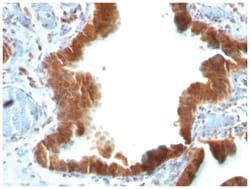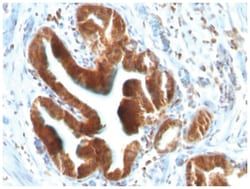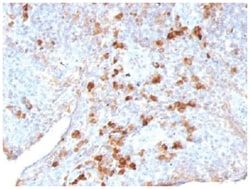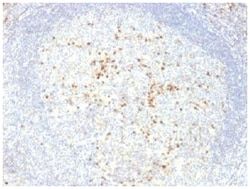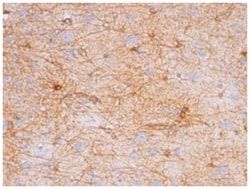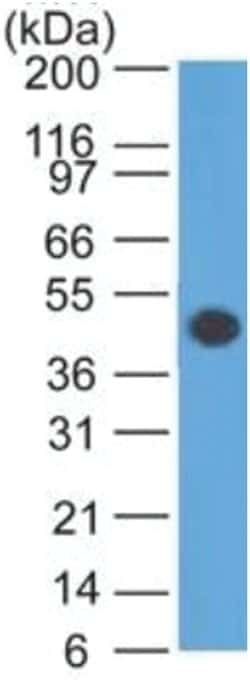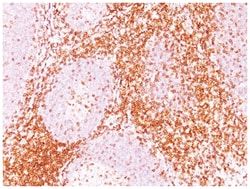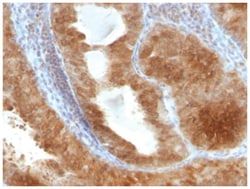TGF-alpha Mouse, Clone: TG86, Novus Biologicals™
Mouse Monoclonal Antibody
Manufacturer: Fischer Scientific
The price for this product is unavailable. Please request a quote
Antigen
TGF-alpha
Dilution
Flow Cytometry 0.5-1ug/million cells, Immunocytochemistry/Immunofluorescence 1-2ug/ml, Immunoprecipitation 1-2ug/500ug protein, Immunohistochemistry-Paraffin 1-2ug/ml, Immunohistochemistry-Frozen 1-2ug/ml
Classification
Monoclonal
Form
Purified
Regulatory Status
RUO
Target Species
Human, Rabbit, Zebrafish
Gene Accession No.
P01135
Gene ID (Entrez)
7039
Immunogen
A 10-amino acid synthetic peptide (aa 34-43) from human TGFalpha.
Primary or Secondary
Primary
Content And Storage
Store at 4C.
Molecular Weight of Antigen
6 kDa
Clone
TG86
Applications
Flow Cytometry, Immunocytochemistry, Immunofluorescence, Immunoprecipitation, Immunohistochemistry (Paraffin)
Conjugate
Unconjugated
Host Species
Mouse
Research Discipline
Angiogenesis, Cell Cycle and Replication, Signal Transduction
Formulation
PBS with 0.05% BSA. with 0.05% Sodium Azide
Gene Alias
protransforming growth factor alpha, TFGA, transforming growth factor, alpha, transforming growth factor-alpha
Gene Symbols
TGFA
Isotype
IgG1 κ
Purification Method
Protein A purified
Test Specificity
This antibody reacts with the TGF alpha and shows no cross-reaction with EGF and the neuropeptide synenkephalin. The staining with this MAb is completely blocked by the peptide used for raising this antibody.
Description
- TGF-alpha Monoclonal specifically detects TGF-alpha in Human, Rabbit, Zebrafish samples
- It is validated for Flow Cytometry, Immunohistochemistry, Immunocytochemistry/Immunofluorescence, Immunohistochemistry-Paraffin.
